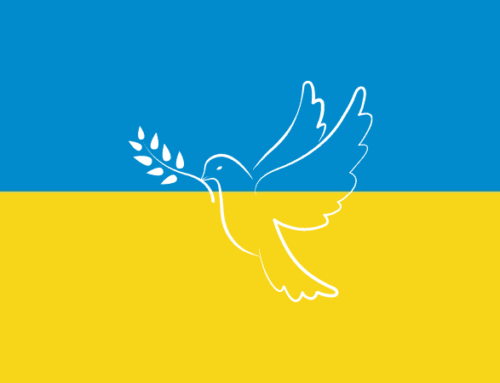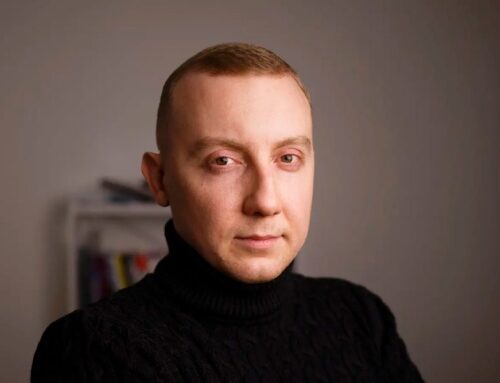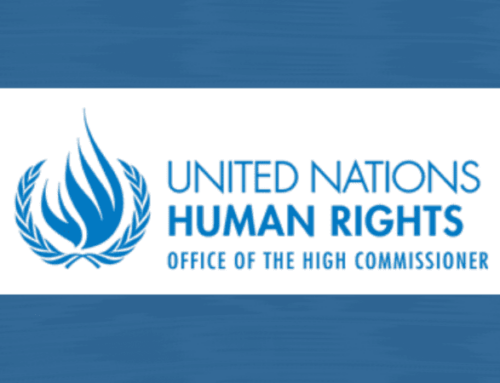On December 20, 2021, in the Goloseevsky District Court of Kiev at 15:30, a court hearing was scheduled in the case of Nikolai Aurelovich Fedoryan, accused of deliberately defecting to the side of the enemy in a state of martial law or during an armed conflict, espionage, providing assistance to a foreign state in carrying out subversive activities against Ukraine (Part 1, Art. 111 of the Criminal Code). There is one defendant in the case. Based on the statements of the Unified Register of Court Decisions, the indictment was submitted to the court on March 29, 2021.
According to the materials of the criminal proceedings on N.A. Fedoryan the issue was repeatedly resolved (about five times) on the extension of the measure of restraint of detention, which may indicate a delay in the consideration of the case on the merits and violate the principle of reasonable time for the trial. According to the lawyer, the following also take place in the case: the inclusion in the evidence bases of evidence provided in violation of the procedural law, the lack of proper medical care. Also, observers of the IAC ISHR stated a violation of the principle of publicity.
Regarding the measure of restraint. According to the statement of N.A. Fedoryan’s lawyer, as well as a result of studying the materials of the criminal proceedings, it should be noted that the prosecutor’s petition to extend the measure of restraint in the form of detention is not supported by any evidence. Which casts doubt on the validity of extending the exceptional measure of restraint. The problem is aggravated by the fact that in the present case the observance of the principle of reasonableness of the terms of detention is also in question.
To date, in terms of N.A. Fedoryan the measure of restraint in the form of detention was extended until 01/30/2022.
The study of court decisions regarding the extension of the measure of restraint of the accused showed that the content of most of them in terms of risks and their validity is identical: “… may hide from the court; destroy, hide or distort documents; illegally influence witnesses; commit another criminal offense or interfere with criminal proceedings in another way … is registered and permanently resides in the temporarily occupied territory of Ukraine – the Autonomous Republic of Crimea, does not have property and work in mainland Ukraine; has a passport of a citizen of the Russian Federation; stable relations with representatives of the Security Service of the Russian Federation; special rank of retired police colonel …”.
Such actions of the court can be regarded as a violation of the right to personal liberty in the context of Article 5 of the ECHR. The European Court has developed a well-established case-law and formulated the main legal positions regarding the requirements that states (national courts) are obliged to comply with in accordance with paragraph 3 of Art. 5 ECHR. In particular, the case-law of the ECtHR has determined that the existence of a reasonable suspicion that the accused has committed a serious crime may at first justify detention, but at the same time, the gravity of the charge cannot in itself justify long periods of detention (“Echus v. Lithuania”, para. 68), (“Merabishvili v. Georgia” para. 223). Which, based on the analysis of court decisions on the extension of the measure of restraint in the form of detention, may also take place in the case of N.A. Fedoryan.
The principle of reasonableness of the terms of the trial. Lawyer A.E. Omelchenko pointed out that in this case the issue of extending the measure of restraint was repeatedly decided, the consideration of the case in essence took place only once on May 25, 2021. Another consideration of the case on the merits was planned for December 20, 2021, but the hearing did not take place and was rescheduled. The official reason was that the judges were at another court session, which dragged on. But according to the defense, the reason was the filing of a lawyer’s petition for the reclamation of evidence and the unwillingness of the judge to pass a decision on it. The hearing was postponed to 01/24/2022. Even given the fact that quarantine restrictions are in place, which complicates the work of the courts, criminal proceedings tend to hold court hearings exclusively on measures of restraint, and not on the merits of the case. Article 6 of the Convention for the Protection of Human Rights and Fundamental Freedoms guarantees the right to a fair and public hearing within a reasonable time by an independent and impartial tribunal established by law in determining a person’s civil rights and obligations or in any criminal charge against a person. The long-term stay of the suspect/accused in ignorance about his fate due to excessively long consideration of his case is noted by the ECtHR as a violation of Article 6 paragraph 1 of the ECHR (“Vemhov v. Germany” para. 18, “Brogan and Others v. the United Kingdom” para. 65).
Lack of proper medical care. In the case file there is a Certificate of illness No. 47 dated 01/21/2011 and extracts from the medical history No. 5924 confirming the illness of N.A. Fedoryan and indicating the need for constant medical care with constant monitoring. The disease was received in connection with the performance of official duties after the accident at the Chernobyl nuclear power plant (category 2 certificate No. 371123 dated 01/21/1999). According to the lawyer, this circumstance is not taken into account by either the prosecutor or the judge. Based on the statements of the register of court decisions, the accused repeatedly asked to take into account the state of health, since after suffering from Covid-19, he loses his sight, blood clots form, which can lead to death. In the decision of the ECtHR “Pokhlebin v. Ukraine” para. 62, the Court states: “… the state authorities must also ensure a comprehensive record of data on the state of health of the prisoner and the treatment he received during detention … The state authorities must also prove that the necessary conditions were created for the actual implementation of the prescribed treatment regimen … “. ISHR experts faced a similar situation in the case of A. Melnik and others, when A. Melnik, who is the liquidator of the Chernobyl accident, has not been provided with high-quality medical care for seven years, and his health is deteriorating every year. The European Court considers the provision of proper conditions and health care for persons in custody to be the duties of the state (“Lunev v. Ukraine”, para. 71), noting that compliance with these obligations is guaranteed by Article 3 of the ECHR, which prohibits torture.
Inclusion in the legislative framework of “doubtful” evidence. The procedure for the detention of the accused by the personnel of the “Kalanchak” checkpoint and the Security Service of Ukraine (SBU) officers was, according to the lawyer, conducted with violations of the norms of procedural law: failure to comply with the deadlines, the procedure for a personal search and screening of a mobile phone. On this fact M.A. Fedoryan filed an application for a criminal offense against him on the fact of illegal detention, but has not yet received a response. According to Art. 87 (“Evidence obtained as a result of a significant violation of human rights and freedoms is inadmissible”) of the Criminal Procedure Code of Ukraine, evidence obtained in this way is recognized by the court as obviously inadmissible. The national courts must ensure that the accused has the opportunity to challenge the admissibility of evidence, to object to it, as well as to prove circumstances that allow the evidence to be considered inadmissible (“Jalloch v. Germany”, paras. 118, 120, 122, and “Bykov v. Russia”, para. 95). Moreover, when examining and evaluating the evidence, the courts must take into account the comments and arguments of the parties. Only in such case, consideration in the context of paragraph 1 of Article 6 of the ECHR will be considered fair.
The principle of publicity. The judge officially denied the ISHR observers the opportunity to be present in the courtroom where the open court hearing in the case of N.A. Fedoryan was held. Despite the fact that this was argued by the presence of quarantine restrictions, previously, observers have not encountered a ban on attending court hearings in the courts of Kiev. It should also be noted that a representative of the Russian embassy was not allowed to attend the hearing. The ECtHR reiterates that holding public hearings is a fundamental principle enshrined in Article 6 paragraph 1 of the Convention. (“Ripan v. Austria”, para. 27). Although the right to a “public hearing” of a case follows from the wording of Article 6 of the ECHR, cases in this category are dealt with under the general heading of “fairness”, which includes publicity and the right of third parties and the media to be present at the trial. The purpose of this rule is to protect the parties from the secret administration of justice, as well as to ensure greater openness of justice, maintaining public confidence in the judiciary (“Axen v. Germany”, para. 25).
The hearing again did not take place, which was reported an hour after the appointed time, at 16:30. The International Society for Human Rights will continue monitoring and clarifying the details of this proceeding.








Leave A Comment